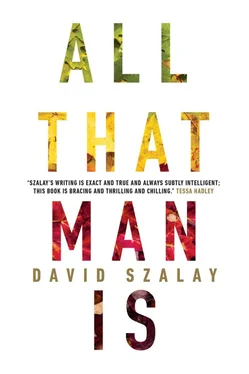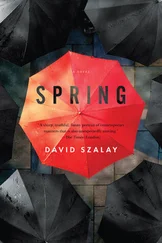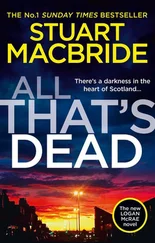‘Isn’t it?’ he says.
They have entered the park and are walking along an asphalt path that follows the edge of a thin, green lake. There aren’t many people around.
‘Did you contest it?’ she asks.
‘Nah. They said if I went quietly they’d give me a decent reference, so…’ He shrugs.
‘And did they?’
‘Yeah,’ he admits.
‘And then you got the job at the gym?’
‘Well, yeah, eventually.’
At its narrowest point, there is a small wooden bridge over the lake and they walk out onto it.
‘But that’s not really enough,’ he says. ‘In itself. It’s only part-time really. So I’ve got to do other stuff as well.’
‘Stuff like this,’ she suggests.
‘Well, yeah,’ he says. They have stopped on the bridge, and looking out at the murky green water he lights a cigarette. He seems uneasy, even embarrassed, that she has touched on why they are in London — or had he touched on it first? He hadn’t meant to, he doesn’t think. Indeed, he shies away from the subject, and says, ‘When I was a kid, I wanted to be a water-polo player.’
‘Did you?’
‘Yeah. I was alright,’ he tells her. ‘I thought I might do it professionally.’
‘And?’
‘I don’t know,’ he says. ‘It didn’t happen somehow. Maybe I wasn’t aggressive enough. There were other guys, more aggressive.’ He is squinting at the water. ‘Anyway, it didn’t happen.’
‘That’s a shame.’
‘Yeah.’ He had thought it was something he had entirely come to terms with. Just for a moment, though, he feels the pain of it again — feels it, in fact, more nearly, more immediately than he ever has before. It’s as though he understands, for the first time, exactly what was at stake — his whole life, everything.
‘What did you want to do,’ he asks, ‘when you were a kid?’
The question sounds odd somehow.
She seems to think, for a few seconds, about whether to answer it at all.
‘I don’t know,’ she says. ‘Escape.’
She puts her hands on the sun-pocked paint of the wooden bridge and looks down into the water. Green water, feathers floating on it. ‘It’s a shame we don’t have some bread for those ducks. There’s something so restful about feeding ducks, isn’t there?’
Balázs joins her at the handrail.
‘Don’t you find?’
‘Uh…’
‘It’s probably not something you do much, is it?’ she says, smiling at him. ‘A big tough man like you.’
‘Well, no, not much.
‘I was joking,’ she says.
‘Okay.’
‘When I was little,’ she says, ‘we used to go and stay with my grandparents. They lived in a village somewhere. I used to feed the chickens. I didn’t like that, actually. They were so smelly.’
‘Yeah, chickens stink,’ Balázs says, like someone who knows.
She laughs. ‘Don’t they? They really do.’
They start to walk again, under trees now, on the other side of the lake, its wind-wrinkled surface visible through stirring leaves — the bloodstain-coloured leaves of a copper beech.
‘It’s nice this park, isn’t it?’ she says.
He looks around, as if he had not noticed until now that they were in a park. ‘Yeah,’ he says.
‘It’s so well kept . Look at those flower beds. Are you in a relationship at the moment?’ she asks matter-of-factly.
Startled by the question, he says, ‘Uh, no, not at the moment.’
They walk on, and seconds pass without him saying anything more on the subject. He feels he should, somehow. What is there to say, though? The answer is no. ‘Not at the moment,’ he says again.
Without meaning to they seem to have walked in a circle and are back at the place where they entered the park, the road with the red tarmac cycle lane.
He says, ‘Uh, d’you wanna get a drink or something?’
—
In the muted red interior of a pub called the Globe, with Hogarth reproductions on the striped wallpaper, while the traffic tumbles past outside, they sit with pints, and a few other tourists.
‘So how long have you and Gábor been…?’ he asks, not knowing quite how to put it. Gábor is in fact the last thing he wants to talk about, but he can’t think of anything else to say.
‘About a year,’ she says.
‘How’d you meet?’ Balázs asks, stuck with the subject now.
‘Through work,’ she says. ‘He was involved with a film I made. We met that way.’
‘He was involved ?’
‘Yes.’
‘How?’ And then, almost apologetically, ‘I’ve just never been sure what he…?’
‘The technical side,’ she says smoothly. ‘Post-production. Distribution. More distribution. He knows about computers. Or he knows people who do. You know — it’s mostly online.’
‘Okay.’ Balázs lifts his pint.
‘That was my last film, actually,’ she tells him a few moments later, as if it is something that might interest him.
‘Oh, yeah?’
‘Gábor wanted me to stop,’ she explains. ‘He was fine with it at first. I mean, he was more than fine with it.’ She laughs. ‘I’m pretty sure he liked it, actually. But then, when we’d been together for a few months, it started to bother him. That’s when he said he wanted me to stop.’
Balázs says, ‘But he’s okay with you doing…I mean…’
‘This?’ she says.
‘Yeah.’
‘Well, it wasn’t his idea, if that’s what you mean.’
‘No?’
‘No.’ Then, as if something has occurred to her, she says, ‘Did he tell you it was?’
Balázs thinks for a second. ‘No.’
‘It was Zoli’s idea,’ she says. ‘You know Zoli.’
‘Zoli, yeah.’
‘It was his idea.’
‘He’s a friend of Gábor’s, yeah?’
‘Not really. I mean, they’re not really friends . They know each other somehow.’
‘It was his idea then,’ Balázs says, unwilling now to leave it there, though trying not to show quite how interested he is.
‘Well, he told me how much money I could make here, and said he’d sort it out. I said I’d think about it. Gábor didn’t like the idea. He didn’t want me to do it.’
‘Well…I don’t know,’ Balázs says thoughtfully.
The open doors of the pub admit the passing wail of a police siren.
‘I wouldn’t be able to live with it, if I was him.’
She smiles. ‘That’s a nice thing to say. Can we smoke in here?’
‘Uh.’ He looks for ashtrays, sees No Smoking signs. ‘I don’t think so.’
‘Do you want to go outside then?’
They stand on the pavement in the steady traffic noise. ‘Zoli wants me to move here,’ she shouts.
‘Does he?’
‘He suggested it. The first night, when we were in the hotel, and Gábor wasn’t there. He said I should move here. He said he’d set me up somewhere nice. My own place. I’d only have to work once or twice a month or something.’
‘What did you say?’
‘I didn’t say anything — I laughed. He said he was serious, I shouldn’t laugh.’
‘Do you want to move here?’
‘What, and deal with Zoli all the time? I don’t think so. He’s a total shit, that’s obvious. Isn’t it?’
‘Yeah, I s’pose,’ Balázs says, as if the idea had never occurred to him.
He still seems to be thinking about it when she says, ‘Do you know why I like you?’
He just stares at her.
‘You don’t judge people,’ she says.
‘Don’t I?’ he asks.
‘No,’ she says. ‘Not even Zoli. Definitely not me. Definitely not me. And I know when I’m being judged.’
When they have finished their pints he asks her if she wants another. After asking him what time it is, she says no. ‘I don’t think I’d better.’ Then she excuses herself and goes to look for the ladies. Some elderly Americans, sitting at a nearby table with a map and soft drinks, seem to inspect her as she passes them. When she has moved on, one of them says something and there is a murmur of laughter. Yeah, they’re judging her, Balázs thinks, leaning forward on the tabletop over his folded arms in an attempt to see her as she walks away on the cork-soled shoes. It is nearly one o’clock. Despite her not wanting another pint, he assumes that they will spend the whole afternoon together — what else is there to do? — and he is shocked when she sits down again and says, ‘Should we head back to the flat then?’
Читать дальше












